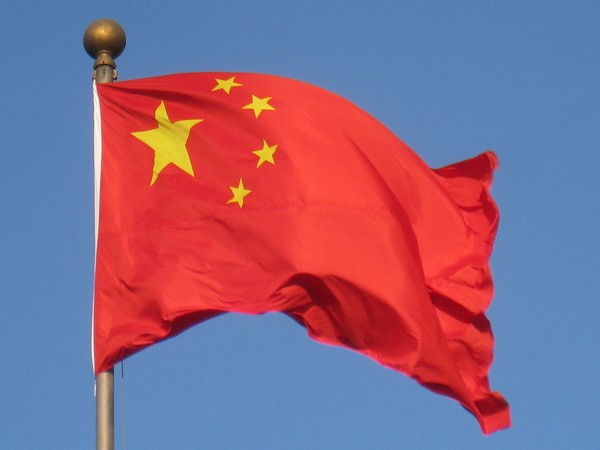In the opaque world of Chinese politics, the sudden disappearance of high-ranking officials has become an alarming trend, exposing the fragility and capriciousness of the country’s governance system.
The recent cases of Qin Gang, the former foreign minister, and Li Shangfu, the ex-defense minister, have thrust this issue into the global spotlight, revealing the deep-seated flaws in China’s authoritarian model of governance.
Qin Gang’s meteoric rise and equally dramatic fall exemplify the precarious nature of power in China’s political landscape.
Handpicked by President Xi Jinping and catapulted into the role of foreign minister, Qin was seen as a rising star and a loyal enforcer of Xi’s diplomatic agenda.
His aggressive “wolf warrior” diplomacy initially earned him favor with the president.
However, just seven months into his tenure, Qin vanished from public view, sparking a maelstrom of speculation and rumors.
The Chinese Communist Party’s response to Qin’s disappearance was characteristically cryptic.
The implementation of a “declassification period” for personnel with access to confidential information, including travel bans and restrictions on future employment, only serves to tighten the government’s grip on information and limit individual freedoms.
Initially citing health issues, the government later announced his removal from office without further explanation.
This lack of transparency is not an anomaly but a feature of China’s governance system, where information control is paramount and accountability to the public is virtually non-existent.
Similarly, the case of Defense Minister Li Shangfu, who disappeared in August 2023, further underscores the volatility of high-level positions in China.
Li’s absence from public view for nearly two months led to his eventual replacement, again with little explanation offered to the public or the international community.
These incidents are not isolated; they form part of a broader pattern of unexplained disappearances and sudden removals that have become almost routine in Chinese politics.
This practice of making officials vanish without a trace is deeply problematic and reflects poorly on China’s system of governance.
It creates an atmosphere of fear and uncertainty within the government ranks, where even those in the highest echelons of power can be removed at a moment’s notice.
This instability at the top echelons of government can lead to policy paralysis, as officials become more concerned with self-preservation than with effective governance.
Moreover, the lack of transparency surrounding these disappearances fuels rampant speculation and rumors, both domestically and internationally.
In Qin Gang’s case, unsubstantiated rumors of an extramarital affair with a television journalist circulated widely, highlighting how the information vacuum created by the government’s silence is often filled with potentially damaging gossip.
This not only undermines the credibility of the Chinese government but also creates diplomatic challenges, as other nations struggle to understand and interpret these sudden leadership changes.
The practice also reveals the extreme centralization of power under Xi Jinping’s leadership.
The ability to remove high-ranking officials without explanation or due process demonstrates the unchecked authority of the party leadership.
This concentration of power in the hands of a few, or ultimately one individual, is antithetical to good governance, which requires checks and balances, accountability, and a diversity of voices in decision-making processes.
Furthermore, these disappearances highlight the precarious nature of individual rights in China.
This creates a society governed by fear rather than law, where personal connections and loyalty to the party leadership trump competence and merit.
The international ramifications of this practice are significant. China’s global diplomatic and military engagements are compromised when key figures like the foreign minister or defense minister can suddenly vanish.
This unpredictability makes China an unreliable partner in international affairs and undermines its efforts to project itself as a stable global leader.
The case of Qin Gang is particularly telling. His rapid ascension to the role of foreign minister, leapfrogging more experienced colleagues, was seen as a testament to Xi’s trust in him.
However, his equally swift fall from grace demonstrates the fickle nature of power in China’s political system.
The fact that he has reportedly been demoted to a low-level job at a state-run publishing house, without any formal charges or public explanation, speaks volumes about the arbitrary nature of power and punishment in China’s governance model.
Similarly, the removal of Li Shangfu and several other senior military officials, including those responsible for China’s nuclear arsenal, raises serious questions about the stability and reliability of China’s military leadership.
The lack of transparency in these removals not only affects China’s internal military operations but also creates uncertainty in international military relations, particularly at a time of heightened global tensions.
This system of governance, where high-ranking officials can disappear without explanation, is fundamentally at odds with the principles of modern, effective governance.
It lacks accountability, transparency, and respect for due process – all essential elements of a stable and just political system.
The practice creates an environment of perpetual uncertainty and fear, which is detrimental to long-term policy planning and implementation.
Moreover, it sends a chilling message to the entire bureaucratic apparatus: no one is safe, and loyalty to the party (or more specifically, to Xi Jinping) is the only currency that matters.
This fosters a culture of sycophancy and risk aversion, where officials are more concerned with pleasing their superiors than with effective governance or addressing the real needs of the country.
The recent passing of the Law on Safeguarding State Secrets further entrenches this opaque system.
True strength in governance comes not from the ability to make people disappear, but from the capacity to build robust, transparent institutions that can withstand scrutiny and serve the genuine interests of the people.
While ostensibly aimed at protecting national security, such laws often serve as tools to control information and limit scrutiny of government actions.
The implementation of a “declassification period” for personnel with access to confidential information, including travel bans and restrictions on future employment, only serves to tighten the government’s grip on information and limit individual freedoms.
The practice of making high-ranking officials disappear without explanation is a stark reminder of the flaws inherent in China’s authoritarian system of governance.
It undermines the stability of the government, erodes public trust, hampers international relations, and creates an environment of fear and uncertainty.
As China seeks to assert itself as a global leader, this lack of transparency and accountability in its governance will continue to be a significant obstacle.
True strength in governance comes not from the ability to make people disappear, but from the capacity to build robust, transparent institutions that can withstand scrutiny and serve the genuine interests of the people.
Until China addresses these fundamental issues in its governance model, its rise on the global stage will always be hindered by the shadows of its own making.









Comment